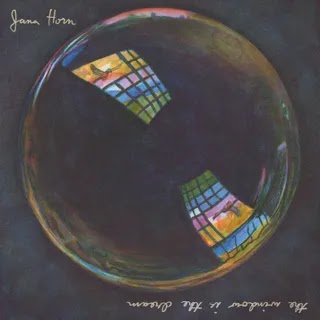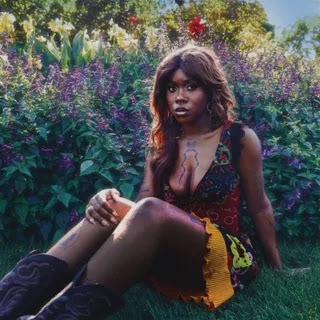The 23-year-old songwriter’s debut renders tales of young love and its quandaries with diaristic lyrics and anguished singing. She’s at her best when she’s plainspoken and immediate.
Los Angeles folk singer Jensen McRae never asks the title question of her debut EP, but its anxious premise haunts her songs. Shadowy forces populate her tales of young love and its quandaries, rotting budding romance from the inside, sniping at it from unseen perches. If McRae were a pulpier writer, this looming paranoia might be the centerpiece of her music, her narrators determined to unmask and confront the elusive “who.” Instead, McRae leaves the saboteurs unidentified, dwelling on the effects of their misdeeds with diaristic lyrics and anguished singing. Though her overreliance on allegory can give Who Hurt You? a detached air, her performances are often gripping.
McRae has a resonant, malleable voice that can shrivel into a wounded yelp or harden into a defiant war cry, poles that suit the melodramatic and confessional modes she favors. Who Hurt You?, produced in full by Rahki (Kendrick Lamar, Jorja Smith, EarthGang), showcases this range with spare compositions that render McRae in focus. Across the brief record’s six songs, she sounds clear and confident even when she’s channeling confusion or ambivalence.
“Immune,” a track about a troubled couple that visits a COVID-19 mass vaccination site and buckles under the weight of these unprecedented times, is charmingly maudlin. “What will we say to each other/When the needle goes in?/What will we be to each other/If the world doesn’t end?” McRae belts with dewy-eyed fear. The song began as a winking Twitter homage to Phoebe Bridgers, one of McRae’s influences, but the completed version goes full schmaltz.
“Wolves” is more hushed, turning brushes with predatory men into a mournful fable. The song makes deft use of negative space, lapsing into silence between McRae’s downcast lyrics as a lone guitar melody flickers in the background. “Thank God women learned to whisper/But I crave a microphone,” she laments in a splintered murmur, sounding both relieved and ashamed. The concepts on other songs are thinner. “Loving you is in my bones,” she sings on “Adam’s Ribs,” a ballad so awash in biblical allusions it could be a Veggie Tales script. “Dead Girl Walking,” a song that uses bodily pain as a metaphor for emotional distance, is just as flat.
McRae is at her best when she’s plainspoken, committed to being immediate rather than bookish. “White Boy,” a song about being erased, is artfully one-sided. McRae describes a white companion ignoring her with disarming precision. “White girl arrives/I turn invisible/I don’t like/Who I am to you,” she sings in a near sob, shrinking into herself. The song is less a confrontation and more an epiphany, McRae’s character stumbling into lucidity. As McRae finds her footing as a songwriter, that ability to burrow into the core of an idea or scene will be key to expanding the casts of her tiny dramas and giving those ambient shadows depth.
















0 comments:
Post a Comment